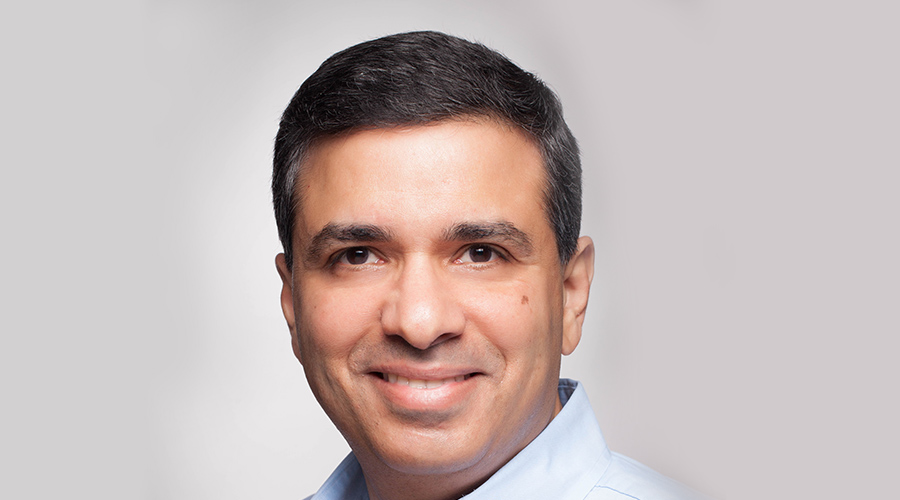
Khush F.Mehta, CEO, Cellworks
Cancer treatment is one of the toughest challenges in healthcare today. Cancer is the abnormal behaviour or growth of cells within a patient’s body, requiring external medical intervention to stop the growth of cancer cells in order for the patient to recover and ultimately survive.
Addressing the Critical Challenges in Personalized Oncology
“Every patient’s cancer is unique and every cancer patient’s tumor has a unique mutational profile,” explains Mr. Khush F. Mehta, CEO of Cellworks. “Yet treatment guidelines typically only target one mutation at a time and do not consider mutational interactions, which often cause drug resistance. This ‘one-mutation, one-drug’ approach has resulted in low therapy response rates for patients – 30% on average across all cancer types.”
At the same time, the number of approved cancer drugs has skyrocketed in the past decade and Next Generation Sequencing (NGS) as well as other genomic data is now more widely available to physicians and patients. But figuring out which therapies will be ideal for an individual patient is left up to the oncologist – further complicating treatment decisions.
Cellworks, a leading U.S. precision medicine company, brings together biosimulation technology, artificial intelligence, NGS bioinformatics and the first Therapy Response Index (TRI) to dramatically improve the selection and success of cancer treatments. Cellworks embraces the uniqueness of each patient’s cancer disease by starting with a patient’s unique molecular profile, which includes NGS data as well as any other available patient-specific data such as epigenetics, proteomics, cytogenetics and transcriptomics. The Cellworks Platform then biosimulates the patient’s responses to 250+ FDA-approved drugs and over 1300 NCCN therapy regimens. The biosimulated predictions are made available to physicians and patients through Cellworks physician portal and print reports.
The company’s biosimulation technology can predict with 90% accuracy an individual patient’s response to specific drugs. Through detailed reports that explain the molecular rationale for a particular recommendation, physicians are empowered with the knowledge of a patient’s responses to all standard treatments as well as novel treatments before the actual treatment begins.
The Cellworks approach to cancer treatment selection is valuable because physicians are empowered with the knowledge of how an individual patient will respond to all standard care drugs or novel combination therapies prior to treatment. Patients avoid ineffective treatments and the associated side effects, which can ultimately improve their overall survival rates. Healthcare payors save the costs associated with treating patients with ineffective therapies.
Pioneering the Field of Personalized Oncology
“The fundamental inspiration for Cellworks is to minimize the ‘trial and error’ approach to patient treatment and drug development,” said Mr. Mehta. “Simulation technology is used consistently in the field of engineering, but not as much in biology due to the complexity of cellular networks. At Cellworks, we have accomplished what was considered impossible by creating the Cellworks Computational Omics Biology Model (CBM), which covers over 5000 genes, 30,000 molecular species, 100+ complete signaling pathways, and all of Weinberg’s Hallmarks of Cancer. The model supports more than 250 FDA approved drugs and 200+ cancer indications. Our platform uses the CBM to biosimulate how an individual patient’s cancer will respond to therapies prior to treatment – eliminating the trial and error approach to cancer treatment.”
The Cellworks CBM is a unified network of biological knowledge curated from heterogeneous datasets capable of accurately modeling the response of individual patient cancer disease to drug therapies. The Cellworks platform uses the CBM and a patient’s genomic data to accurately rank individual patient responses to millions of drug combinations by identifying oncotecture master regulators, mechanisms of resistance and conducting signaling pathway impact analysis.
Cellworks TRI predictions are delivered to physicians through two reports, Singula™ and Ventura™. The Singula report predicts responses to standard care therapies for front-line patients. The Ventura report predicts and ranks personalized response to monotherapies, standard combinations and novel combinations of FDA-approved drugs including off-label and non-oncology drugs for refractory patients. The molecule-to-molecule interactions detailed in both Cellworks reports, alongside PMID sources, clearly explain the rationale behind the Cellworks TRI predictions. Patients, physicians and healthcare payors all gain tremendously from Cellworks TRI predictions by being empowered to immediately select efficacious treatments and avoid the respective physical and financial pains caused by ineffective therapies and drug resistance.
“Cellworks strives to unlock the immense power that lies at the intersection of science, data and analytics,” said Mr. Mehta. “The Cellworks team works tirelessly developing rigorous analytical, evidence-based solutions that can improve the lives of cancer patients. Every therapy prediction from Cellworks is based on a comprehensive science-based therapeutic analytic process that is designed to embrace the unique complexity of an individual.”
Proactively Shaping the Future of Personalized Oncology
“Cellworks has become a world leader in Personalized Medicine in the key therapeutic areas of oncology and immunology with a team dedicated to developing solutions that help physicians and payors identify the most efficacious, cost-effective treatments for patients in a transparent and timely manner,” said Mr. Mehta.
Cellworks’ status as a leader in the field of Personalized Oncology stems from its novel biosimulation approach to cancer treatment selection and the creation of the first TRI, to inform physicians and patients which therapies will be effective prior to treatment. “Cellworks has attracted the world’s strongest trans-disciplinary team of molecular biologists, cellular pathway modelers and software engineers all working towards a common goal – addressing serious diseases to improve the lives of patients,” said Mr. Mehta. “We are making cancer therapy biosimulation a part of the standard care treatment, so that every patient and physician will know which therapy will be the most efficacious – prior to treatment.”
